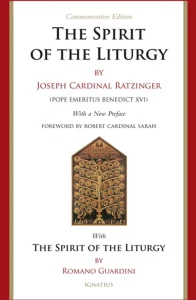Podcast: Play in new window | Download (Duration: 4:59 — 3.5MB) | Embed
Subscribe: Apple Podcasts | Spotify | Amazon Music | Android | Pandora | iHeartRadio | JioSaavn | Podchaser | Gaana | Podcast Index | Email | TuneIn | Deezer | Anghami | RSS | More
Part 3 – Chapter 19 of the Introduction to the Devout Life by St. Francis de Sales
This is a Discerning Hearts recording read by Correy Webb
PART 3 – CHAPTER IX. Of Real Friendship
DO you, my child, love every one with the pure love of charity, but have no friendship save with those whose intercourse is good and true, and the purer the bond which unites you so much higher will your friendship be. If your intercourse is based on science it is praiseworthy, still more if it arises from a participation in goodness, prudence, justice and the like; but if the bond of your mutual liking be charity, devotion and Christian perfection, God knows how very precious a friendship it is! Precious because it comes from God, because it tends to God, because God is the link that binds you, because it will last forever in Him. Truly it is a blessed thing to love on earth as we hope to love in Heaven, and to begin that friendship here which is to endure forever there. I am not now speaking of simple charity, a love due to all mankind, but of that spiritual friendship which binds souls together, leading them to share devotions and spiritual interests, so as to have but one mind between them. Such as these may well cry out, “Behold, how good and joyful a thing it is, brethren, to dwell together in unity!”
Even so, for the “precious ointment” of devotion trickles continually from one heart to the other, so that truly we may say that to such friendship the Lord promises His Blessing and life for evermore. To my mind all other friendships are but as a shadow with respect to this, its links mere fragile glass compared to the golden bond of true devotion. Do you form no other friendships? I say “form,” because you have no right to cast aside or neglect the natural bonds which draw you to relations, connections, benefactors or neighbors. My rules apply to those you deliberately choose to make. There are some who will tell you that you should avoid all special affection or friendship, as likely to engross the heart, distract the mind, excite jealousy, and whatnot. But they are confusing things. They have read in the works of saintly and devout writers that individual friendships and special intimacies are a great hindrance in religious life, and therefore they suppose it to be the same with all the world, which is not at all the case.
Whereas in a well-regulated community every one’s aim is true devotion, there is no need for individual intercourse, which might exceed due limits;—in the world those who aim at a devout life require to be united one with another by a holy friendship, which excites, stimulates and encourages them in welldoing. Just as men traversing a plain have no need to hold one another up, as they have who are amid slippery mountain paths, so religious do not need the stay of individual friendships; but those who are living in the world require such for strength and comfort amid the difficulties which beset them. In the world all have not one aim, one mind, and therefore we must take to us congenial friends, nor is there any undue partiality in such attachments, which are but as the separation of good from evil, the sheep from the goats, the bee from the drone—a necessary separation.
No one can deny that our Dear Lord loved S. John, Lazarus, Martha, Magdalene, with a specially tender friendship, since we are told so in Holy Scripture; and we know that S. Paul dearly loved S. Mark, S. Petronilla, as S. Paul Timothy and Thecla. S. Gregory Nazianzen boasts continually of his friendship with the great S. Basil, of which he says: “It seemed as though with two bodies we had but one soul, and if we may not believe those who say that all things are in all else, at least one must affirm that we were two in one, and one in two —the only object that both had being to grow in holiness, and to mould our present life to our future hopes, thereby forsaking this mortal world before our death.” And S. Augustine says that S. Ambrose loved S. Monica by reason of her many virtues, and that she in return loved him as an Angel of God.
What need to affirm such an unquestionable fact! S. Jerome, S. Augustine, S. Gregory, S. Bernard, and all the most notable servants of God, have had special friendships, which in nowise hindered their perfection. S. Paul, in describing evil men, says that they were “without natural affection,” i.e. without friendship. And S. Thomas, in common with other philosophers, acknowledges that friendship is a virtue, and he certainly means individual friendships, because he says that we cannot bestow perfect friendship on many persons. So we see that the highest grace does not lie in being without friendships, but in having none which are not good, holy and true.


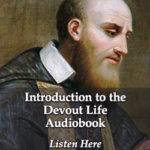

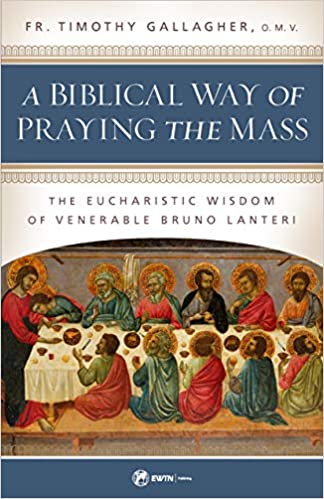
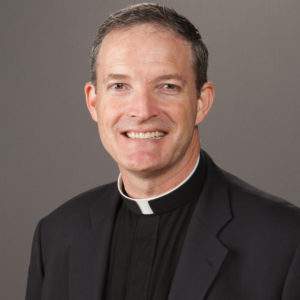
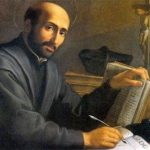

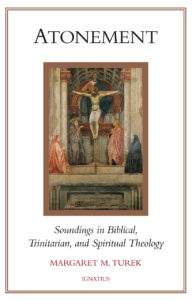
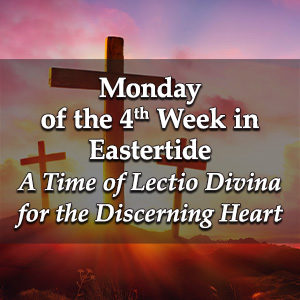 Monday of the Fourth Week of Eastertide – A Time of Lectio Divina for the Discerning Heart Podcast
Monday of the Fourth Week of Eastertide – A Time of Lectio Divina for the Discerning Heart Podcast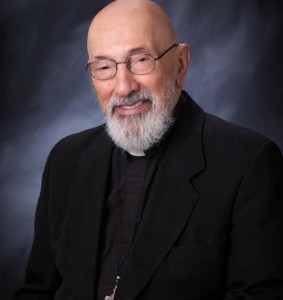 Msgr. Esseff reflects on the readings from the 4th Sunday of Easter, and in particular, Our Lord’s teachings on the role of the Good Shepherd. At the end of this episode, Msgr. Esseff offers
Msgr. Esseff reflects on the readings from the 4th Sunday of Easter, and in particular, Our Lord’s teachings on the role of the Good Shepherd. At the end of this episode, Msgr. Esseff offers 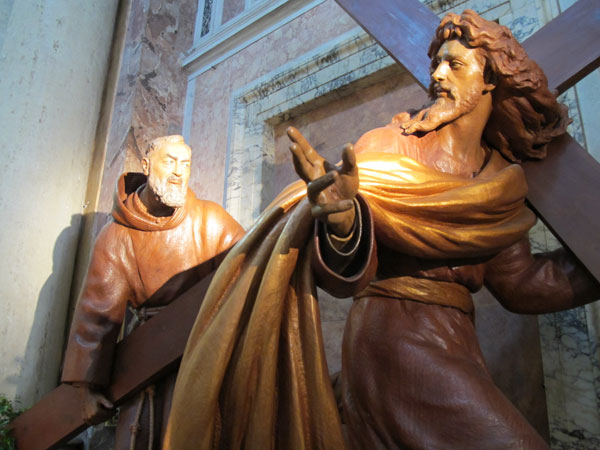
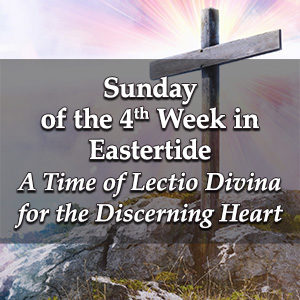 Sunday of the Fourth Week of Eastertide – A Time of Lectio Divina for the Discerning Heart Podcast
Sunday of the Fourth Week of Eastertide – A Time of Lectio Divina for the Discerning Heart Podcast
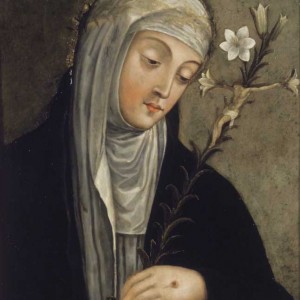 Christ is the bridge to the Father and we cross this bridge by allowing our hearts to be pierced by what the Lord has done for us. The passion of Christ reveals at once the truth about who God is and who we are in his sight. For her, among the greatest blocks to the spiritual life is ignorance. Knowledge of God and knowledge of self go hand in hand in progressing toward spiritual maturity. But the knowing is not simply an intellectual trip. It as the kind of knowing informed by the loving affection of a real friendship. The friendship she describes in tender terms evokes the deepest joys and sorrows all at once.
Christ is the bridge to the Father and we cross this bridge by allowing our hearts to be pierced by what the Lord has done for us. The passion of Christ reveals at once the truth about who God is and who we are in his sight. For her, among the greatest blocks to the spiritual life is ignorance. Knowledge of God and knowledge of self go hand in hand in progressing toward spiritual maturity. But the knowing is not simply an intellectual trip. It as the kind of knowing informed by the loving affection of a real friendship. The friendship she describes in tender terms evokes the deepest joys and sorrows all at once.
